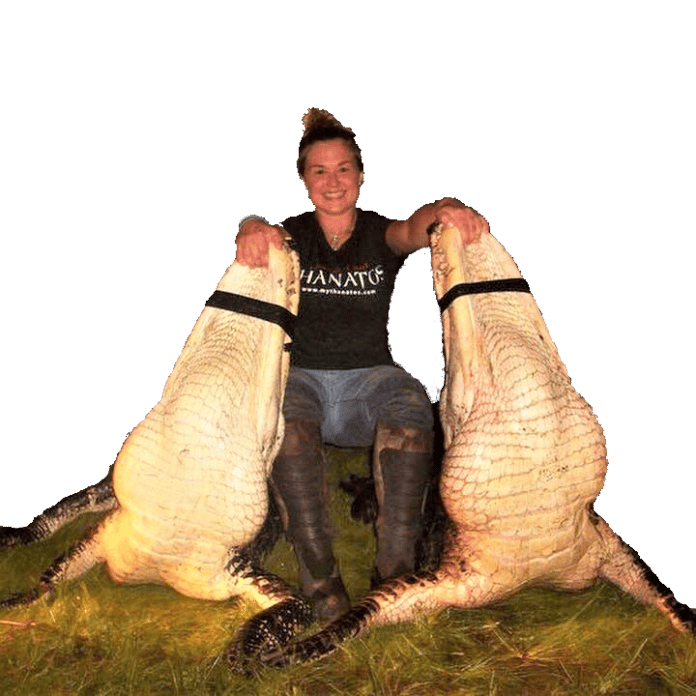Happy times are here again; it’s the start of Florida’s Statewide Alligator Harvest. Hopefully all of the hunters and guides are having a bit better success with their boats than I am. While scouting for the upcoming season I’ve had mechanical issues plaguing me and giving me no end of worry. But it’s nothing which I can’t overcome; it may be a bit of a shaky start, but I’ve promised myself and my clients that this season will be one to remember.
Now, I understand that not everyone appreciates the thrill of the hunt, but my goodness, the fruits of the labor are so very worth it!
Of course, I’m talking about the meat. Alligator meat is regarded as pretty fancy dining throughout most of America, mostly because in the north, midwest and western states, there are no gators. It’s all just further proof that we Southerners are truly blessed. Here are five thing that you need to know about Florida’s alligator season to sort of explain what we’re doing and how we’re doing it.
1. You can’t bait any hook! Using a baited hook is pretty indiscriminate. Nobody wants to waste a tag on a little gator and once he swallows the hook, there is no catch and release. However, baiting a line without a hook is still useful. You can do this legally with a long, heavy line with a wire leader and a 2” wooden peg. The idea is that the alligator will swallow the bait and peg, which will lodge inside the gator allowing the hunter to pull the gator boat-side. Also, if the gator escapes, the wooden peg will not injure the gator unlike a steel hook. Just remember, the end of this line must be attached to a fishing rod or hand held. It cannot be left tied to a tree limb the way you see it done on television.
2. No guns allowed! You must attach a line to the gator to bring it to the shore or boatside. There are a few options for doing this; typically hunters use a harpoon, bow or crossbow shot to attach a line to the gator.
I prefer snatch hooks on the end of a Saltwater fishing combo to get my lines attached. Yes, lines, plural, A big gator is not at all easy to work in close and as soon as possible I want a second line attached to him to better keep his movements under control.
To end the fight, and a wild and frenzied fight it can become, we use a bangstick. A bangstick is a four or five foot pole that has a power head at the end of it, into which you INSERT IGNORE a pistol cartridge to safely “shoot” the gator underwater. A short and sharp thrust to the back of the head and it is the best legal and humane way to kill the gator.
3. You need specialized gear! Not everyone has an arsenal of snatch hooks, bangsticks and harpoons at their disposal. Do your homework and go with a buddy that has some experience and already has the proper gear.
Maybe consider hiring a guide if this is your first gator hunt and learn from them how to use the tools of the hunt. A wide beamed, high-powered light is your best friend once the sun goes down and cordless is best. There will be a ot of lines and ropes and people moving around; cordless will prevent any tangling or tripping.
4. Don’t go off the map! Earlier in the year, each applicant will submit to enter the lottery for tags. If the applicant is selected, he or she will be awarded one permit with two tags for a specified location. There is no guarantee that you get drawn. Just learn the area and know your boundaries.
Many of the hunt areas are designated as hunt units with specifically identified borders; cross them and the Game Officer will surely take exception to that.
5. Always put safety first! A lot can go wrong on the water at night while you are chasing an alpha-predator that could be upwards of 15 feet long with a mouth full of huge teeth. Cell phone service is not always a guarantee and you could be many miles from the nearest boat ramp. So remember to be highly aware of the potential for serious injury. Flotation devices should be aboard, that goes without saying, as they’re required by law. Also, you will need reliable lights and lighting systems to navigate safely in the dark and a well-stocked first aid kit including pressure bandages, tourniquet and foil blanket. Always hope for the best, but with these powerful predators, you must be prepared for the worst.
As always, feel free to reach out to me at [email protected].
God bless and good hunting!

